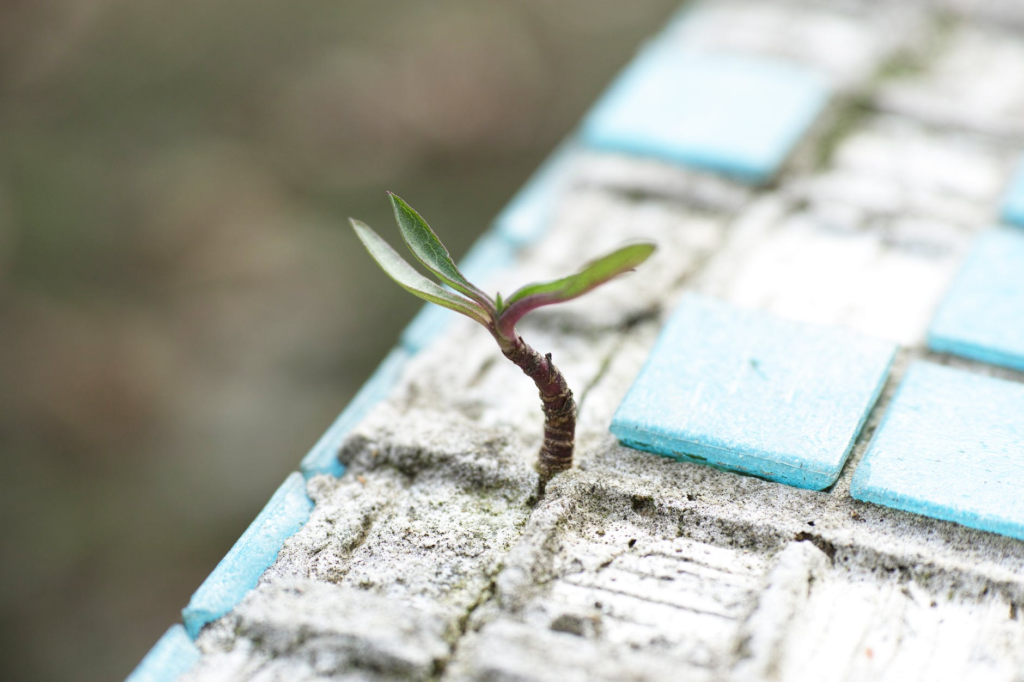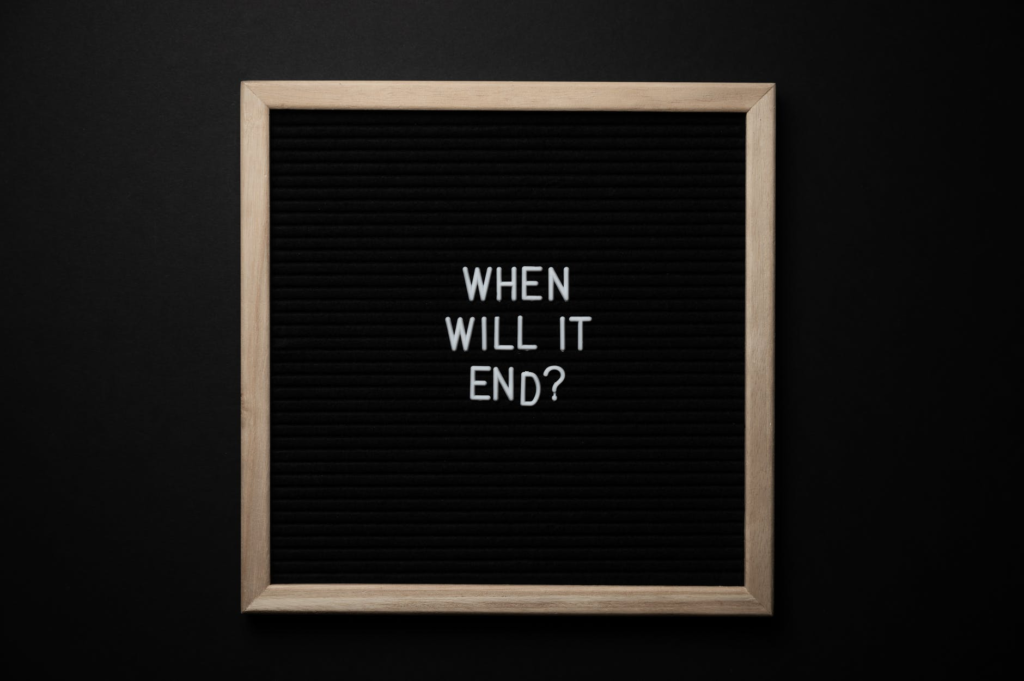Do you want to overcome the feeling of hopelessness? This therapist-approved article will give you the top strategies to overcome hopelessness and feel like yourself again.
Similar to the way we experience many emotions, we all have different subjective experiences of hopelessness. We also may have felt hopeless in different ways throughout the course of our lives. We may feel hopeless after not getting our dream job, trying to find the right partner, after the death of someone close to us, thinking about the political future, ruminating on climate change, after a fight with a partner, when our kids seem to never listen to us, or thoughts of hopelessness could pop into our heads seemingly randomly.
No matter how hopelessness manifests in our lives, we must take it seriously. For our health, we are obligated to acknowledge the feeling of hopelessness, process it, let it go, and make changes in our lives to try to manage the severity of hopelessness we experience in the future.
These steps can be thought of as the following: acknowledge, process, release, and action. Let’s start with defining hopelessness.
Are you feeling hopeless in your current situation? Click here to reach out to one of our therapists for support.

Definition Of Feeling Hopelessness
Definition of Hopeless from Merriam Webster:
- having no expectation of good or success (despairing)
- not susceptible to remedy or cure
- incapable of redemption or improvement
- giving no reason to expect good or success, giving no ground for hope (desperate)
- incapable of solution, management, or accomplishment (impossible)
I think we all know what it’s like to feel hopeless, but I think for many of us it has manifested differently throughout our lives. Feeling hopeless is not a pathology (something chronically wrong or diagnosable) by itself. Therefore, hopelessness can occur without mental illnesses, such as depression or anxiety. However, feeling hopeless can be a major component of depression and other mental illnesses.

Why Do I Feel Hopeless?
I think that sometimes hopelessness can occur as a feeling that nothing will change in reaction to a problem that has not been resolved.
For example, trying to find a job can feel like an uphill battle. Between submitting resumes, marketing yourself, finding the right jobs, applying again and again, and doing a series of first interviews, it can feel like the cycle never ends. If you have been trying to apply to jobs for months, you may begin to lose hope. Eventually the idea of getting a job feels so overwhelming that you may feel paralyzed by hopelessness.
In situations such as these, when there’s a feeling of paralysis because a problem has not been resolved, gaining a sense of empowerment could come through making an actionable plan to intervene in your situation.
How Depression and Hopelessness Interact
Are you worried you may be depressed? Depression is one of the primary (and most common) diagnoses that can feed into hopelessness, and hopelessness can feed into depression. In severe cases, feelings of hopelessness can lead to wanting to end one’s life.
The following are signs that you may be dealing with a diagnosable mental health struggle. Remember, a proper diagnosis can only be given by a mental health professional, so I would recommend that if you are seeing two or more of the below seek an expert’s opinion.
Signs of Depression:
- Depressed mood
- Loss of interest or pleasure
- Significant weight loss or weight gain
- Significant decrease or increase in appetite
- Moving less or feeling frozen
- Fatigue or less energy
- Feeling guilty
- Feeling worthless
- Not being able to concentrate
- Indecisiveness
- Thoughts of death*
- The urge to commit suicide*
- Plan to commit suicide*
*Note: if you have thoughts of death and/or a plan to commit suicide, immediately call the National Suicide Hotline at 800-273-8255, 911, or go to your nearest emergency room.
Additional Read: Am I Depressed or Lazy? Differences You Need To Know
You may want to consider getting a diagnosis, seeking treatment, and potentially taking medication to help manage chronic depression or mental illness. I have seen in some clients that having help biochemically through medication can help lift up feelings of depression, making it much easier to work on hopelessness as a general feeling hanging over them through therapy and behavioral changes.
If you are exhibiting signs of depression, you may want to reach out for help from a professional. Click here to book an initial evaluation with one of our clinicians.
How To Overcome Feelings Of Hopelessness
If you’re feeling hopeless because a problem doesn’t seem to resolve try the following steps:
Re-approach the problem
-
- How did the problem begin?
- How did the problem get to where it is?
- Are there fears getting in the way of accomplishing your goal?
Think of the priorities in your life
-
- What do you think would help you most to address first to reduce your feeling of hopelessness? Is there a big, lingering problem in your life?
- On the other hand, are there smaller problems that can be quickly resolved that would help you feel more motivated to tackle the larger problems?
- What resources do you have around you (skills, people, opportunities) that can help you break the cycle of hopelessness?
Give yourself a reality check
-
- Instead of blaming others or the situation, think of where your actions contribute to a feeling of stagnation.
- What have you been doing to undermine your own cause?
- Are you missing tools or skills to help improve your situation?
Think of actionable steps to improve your situation
- Could reaching out to others or reaching out for support help you?
- How can you feel healthier, mentally and physically?
- What is one thing you can do each day to improve your position in solving the problem?
- Allow yourself to think outside of the box and brainstorm.
- Set up a structure for yourself to get moving on the problem. Do not give in to feelings of paralysis or stagnation.
Focus on taking care of yourself
Without the energy in your body to create the life you want, you will continue to feel hopeless.
-
- What activities/ways you take care of yourself help you gain energy and feel the momentum?
- How can you incorporate these activities into your daily, weekly life?
- Set up a plan, goals, and rewards for helping you get to the place of approaching your problems with more energy.

Conclusion
- Hopelessness can be defined as the feeling that things won’t get better.
- It’s possible to fight hopelessness by acknowledging the problem, processing what led to the problem getting worse, and taking action steps to fight the problem.
- Hopelessness and depression can pair up with one another and feed into one another.
- If you experience hopelessness often, you may consider getting help by clicking here and seeing if you have a diagnosable mental illness.
- Long-term feelings of hopelessness can lead to learned helplessness, which can cause us to feel that no matter what we do, our situation will not improve.
- Learned helplessness can be approached creatively to improve your situation, not necessarily resolving it, but living within the situation with more freedom and hope.
- Feelings of hopelessness can bleed into everything in our life. When this happens, you should consider professional help to assist in breaking down your feelings of hopelessness and tackling them one by one.
- Sometimes hopelessness and helplessness can cause suicidal feelings. If you are feeling suicidal, call the National Suicide Hotline 800-273-8255, 911, or go to your nearest emergency room.
Must Read: Feeling Numb: Signs, Symptoms & Strategies
The big takeaway from feelings of hopelessness is that there is always something that can be done, no matter how hopeless you feel. Sometimes our brains trick us into believing that there’s nothing to do to make things better. Acknowledging that hopeless thinking and distancing yourself from it can be the first step to gain the energy to take action to improve your life.
What would you like to hear about from our therapists? What are you looking for guidance with? At Best Therapies, we are committed to trying to help as many people as we can, because folks need it, right now. Write to us, and we will use your thoughts for future blog posts. Be well.


